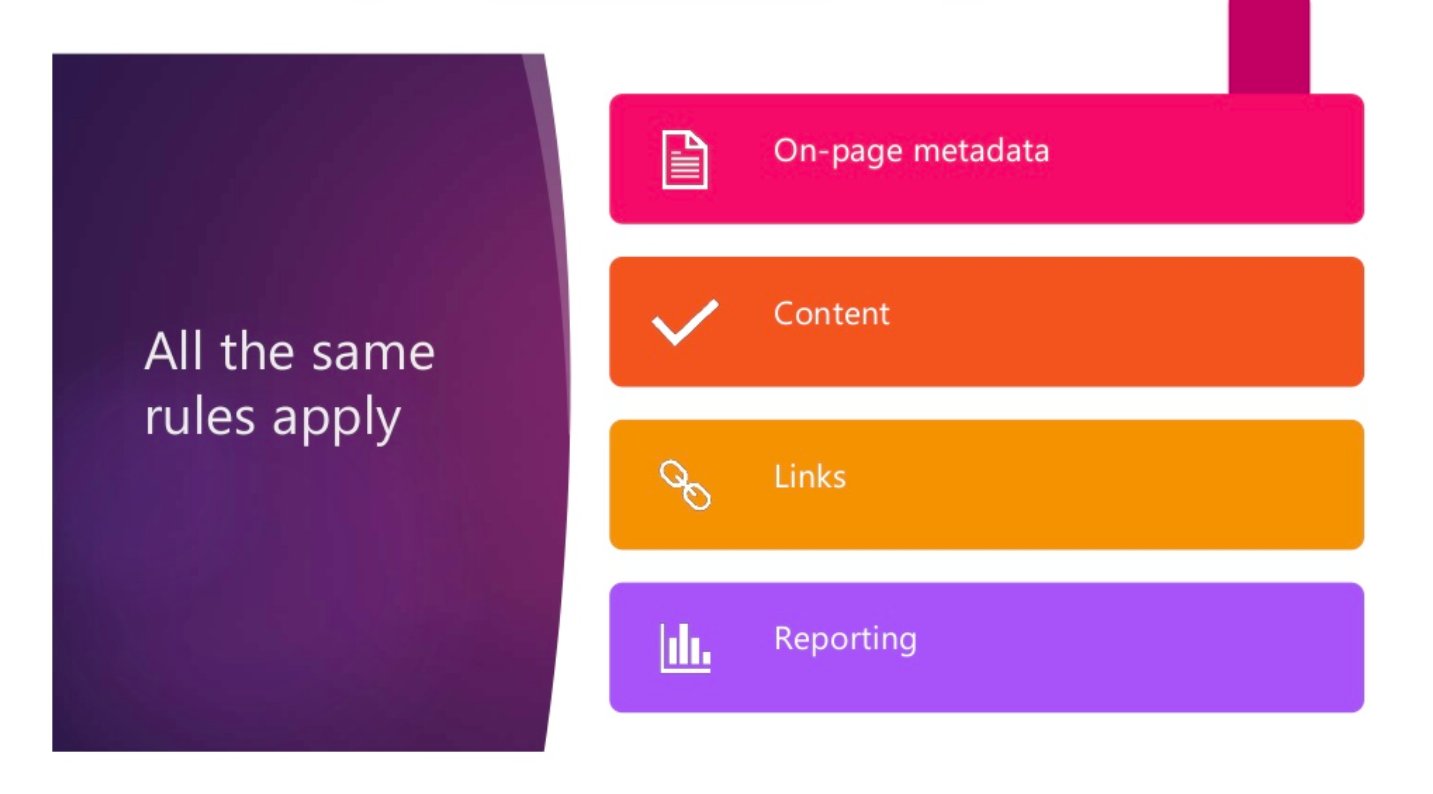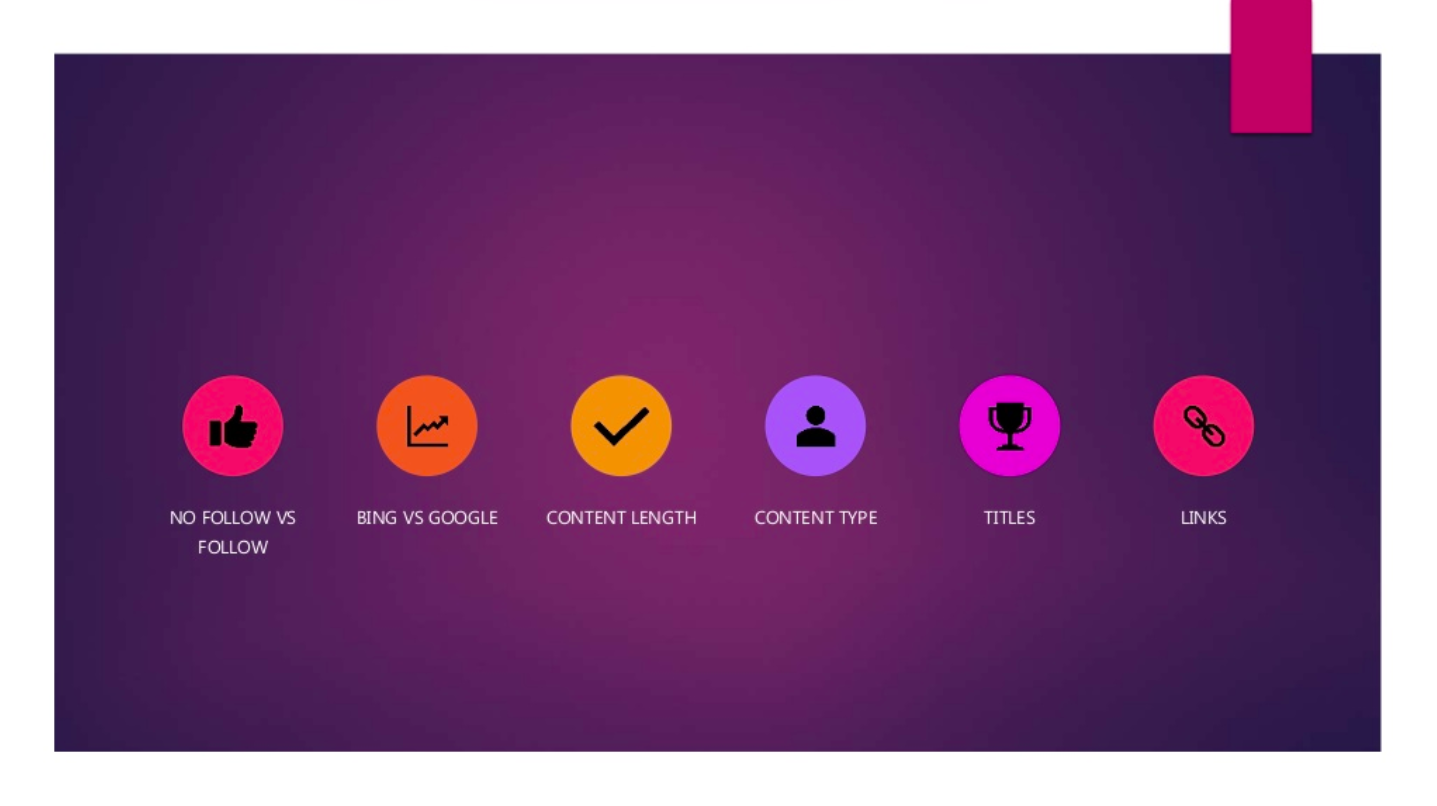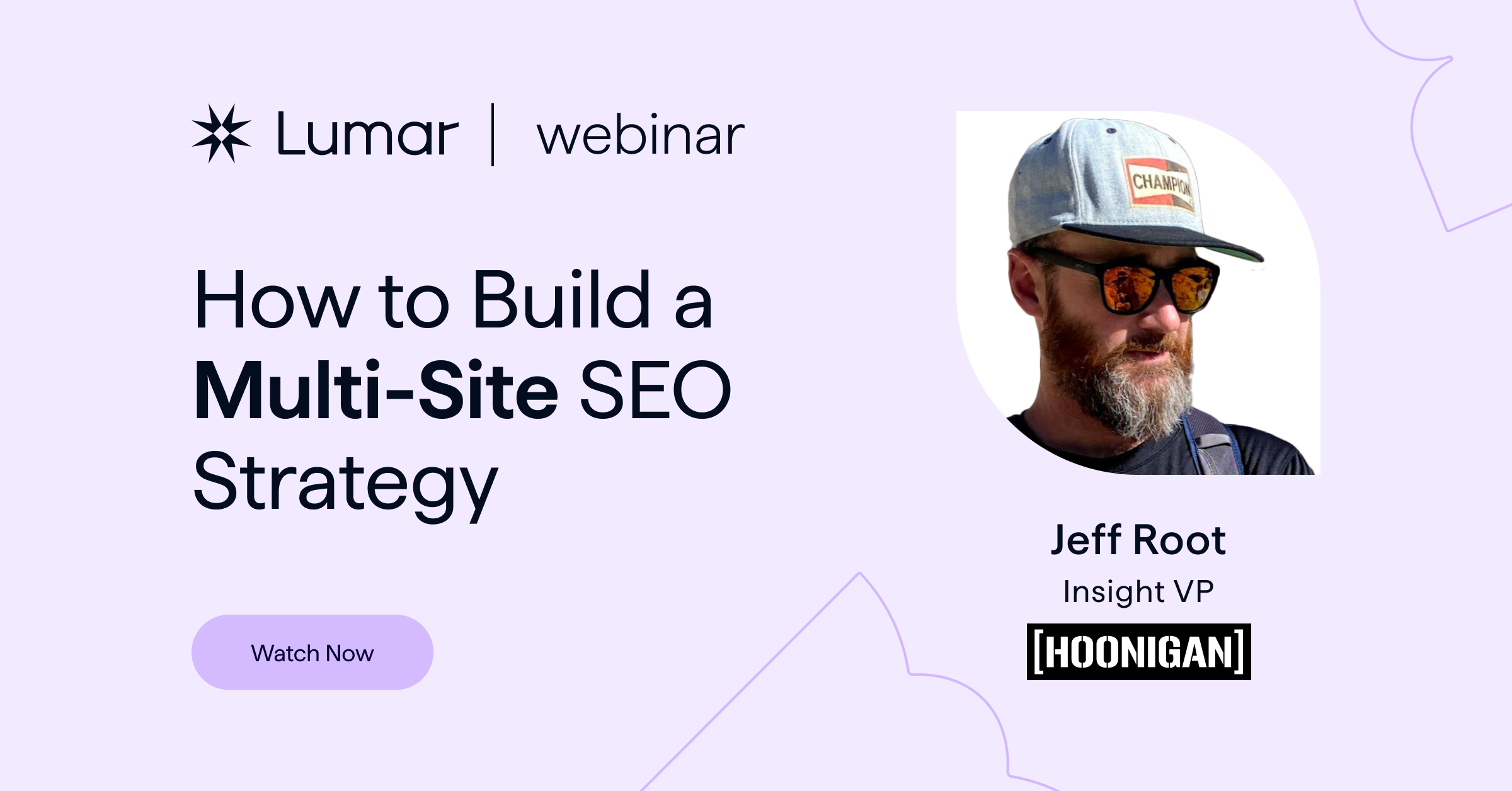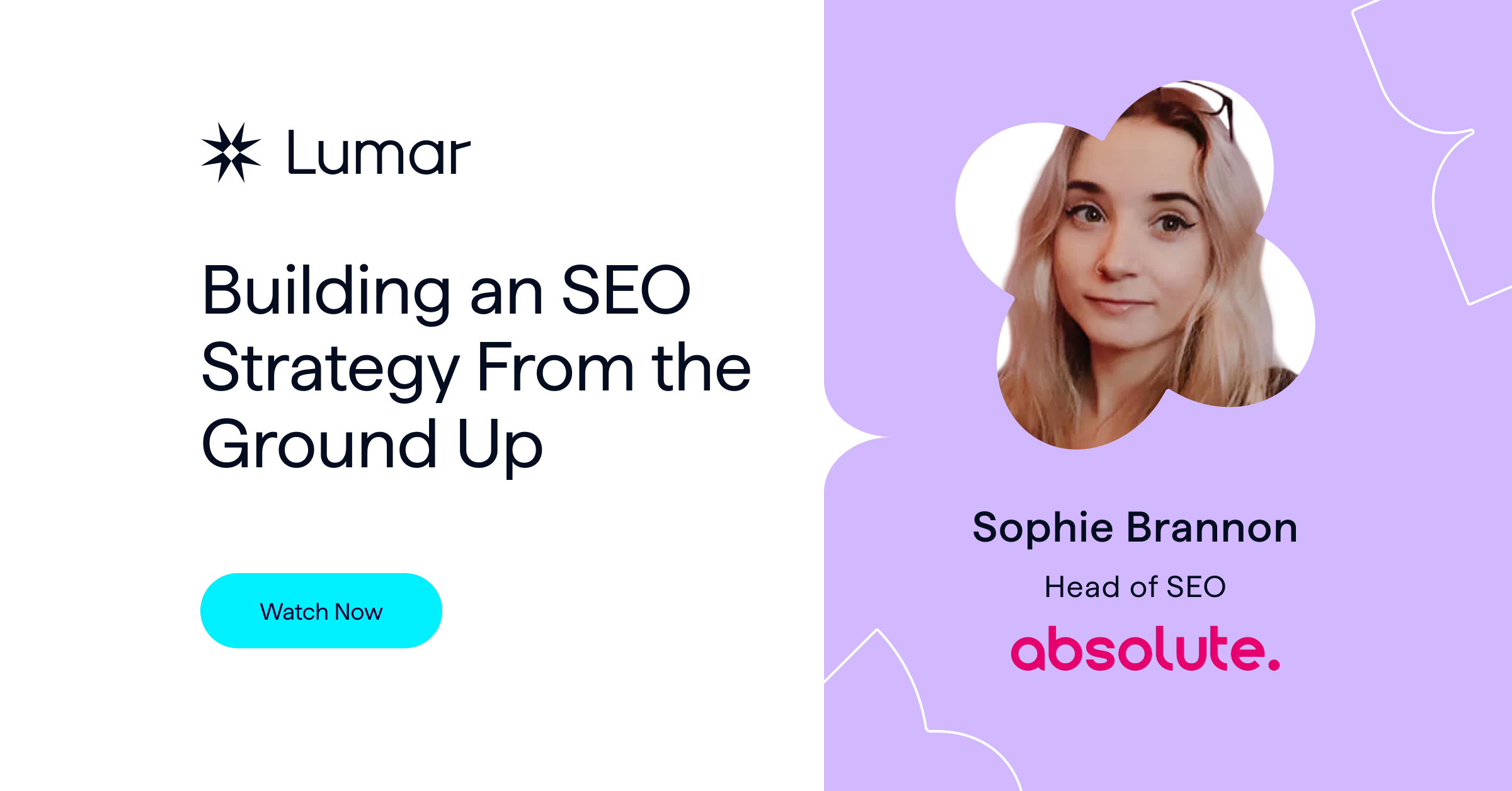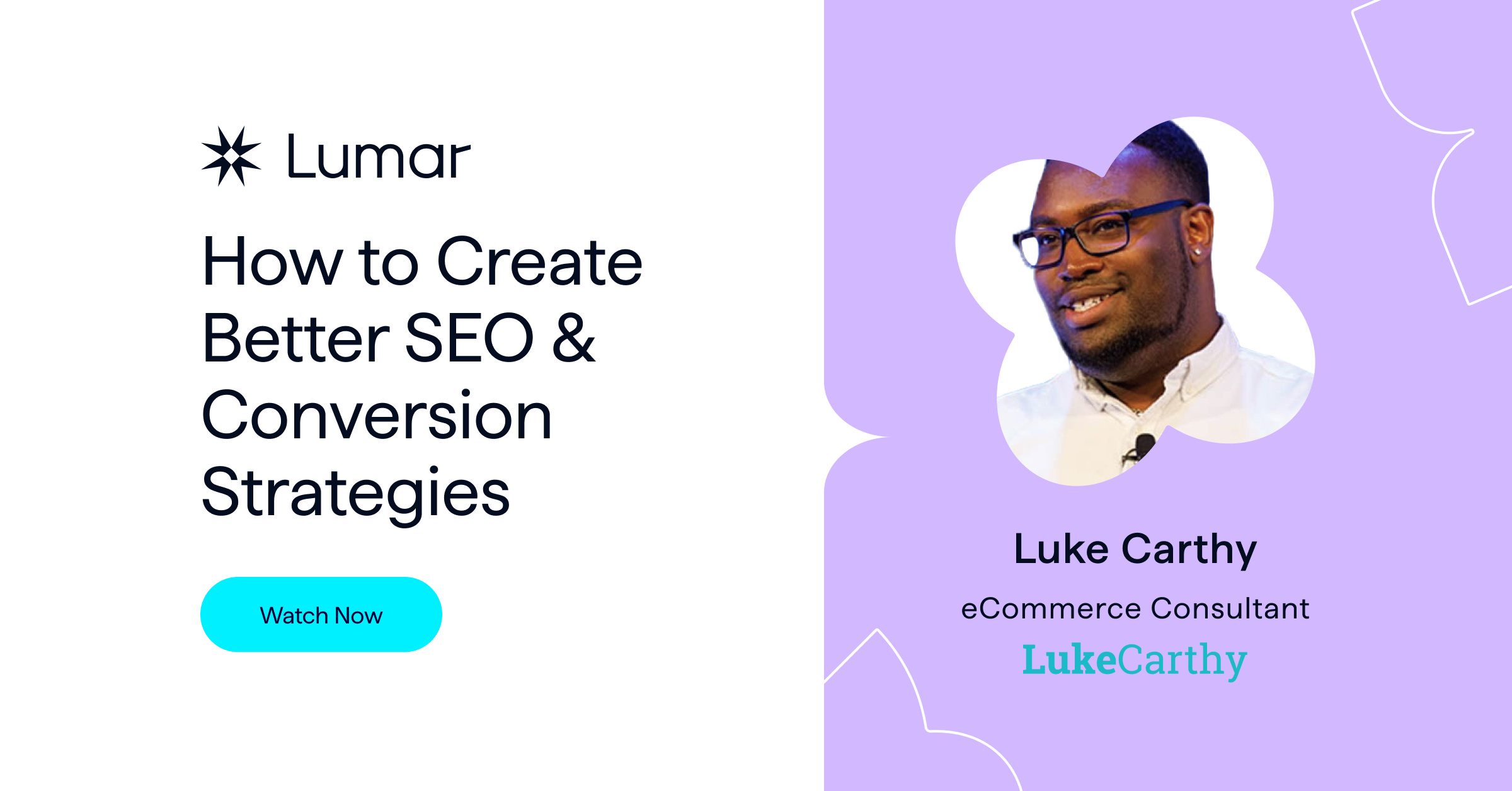For the latest DeepCrawl webinar, we were very pleased to welcome Eli Schwartz, former Director of Growth and SEO at SurveyMonkey, to share his advice for working within Enterprise SEO and demonstrate how to succeed when working with sites at scale. Eli has worked with many different large companies over the last 10 years to help them scale their SEO and build strategies to ultimately achieve success.
We’d like to say a big thank you to Eli for his great presentation and for answering our audience’s questions, as well as to Jon for hosting and all those who attended. We hope you enjoyed the webinar!
You can watch the full recording here:
Here are the slides that Eli presented:
What is Enterprise SEO
Enterprise SEO is not just about doing SEO for large, B2B sites, it is about undertaking SEO at scale. While on a smaller site tweaks can be made to individual elements on every page, when working on a website at scale it can take a lot longer to change things and see results.
Eli recommends thinking of Enterprise SEO like a train. It can take a large train a mile to stop, which is much like working with large sites – if you want to change something, you need a lot of time to do it. Also, the head of a train doesn’t know what the tail is doing, much like the CEO of a company is not aware of what the SEO team are doing and what is happening deeper in the site.
@5le is kicking off our webinar with important wisdom. When you think of a website at scale, think of it like a train. It takes a large train a mile for it to stop. It’s the same for enterprise #SEO. If you want to change, you need a lot of time to do it. pic.twitter.com/fHajH0IUVt
— DeepCrawl (@DeepCrawl) May 29, 2019
Despite the size of a site, the fundamentals of SEO are exactly the same, such as focusing on on-page metadata, content, links and reporting. However, with enterprise sites this is all happening at scale which makes everything much more complex.
The Enterprise Difference
When working with a larger site, there are a number of different teams you will need to work with and areas which will need to be optimised. One example of this is working with both a frontend and backend team, who will be responsible for different parts of the site. There is also the challenge of infrastructure, with different servers set up to perform a number of tasks. For example, you may have an entire server just for redirects.
The scale of a website at scale doesn’t just mean its size and the number of pages it has. Scale also relates to the number of impressions and traffic it generates. Eli showed an example of a site he has worked on, which received over 1 billion impressions a month. Due to the amount of traffic and revenue an enterprise site generates, it’s crucial to maintain SEO health and performance, as any errors can cause a huge impact on the overall business metrics for a company.
10 Top Tips for Success in Enterprise SEO
Following his experience working with large sites and performing SEO at scale, Eli has collated some important key areas to focus on to ensure success can be achieved.
1. Tools
With many different projects, accounts and sites to analyse and monitor, enterprise sites need enterprise-level tools. Eli would recommend using tools including DeepCrawl, Searchmetrics and Ahrefs, as well as Google Data Studio, which is useful for pulling in and visually monitoring data from different sources.
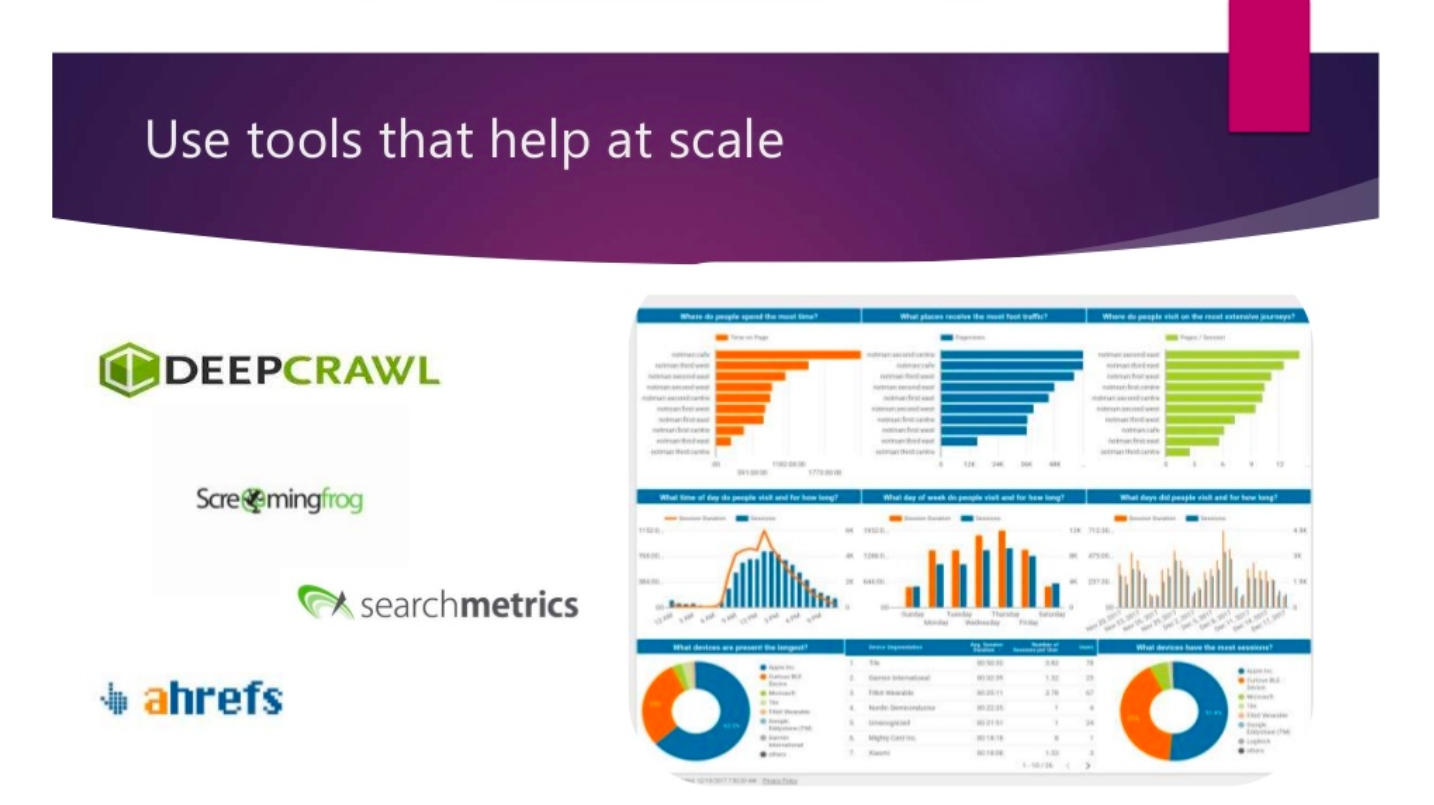
Other tools which can be helpful for content creation include; Answer The Public, Google Keyword Planner and the Internet Marketing Ninjas tool for featured snippets.
2. People
While having knowledge of best practice SEO, it is also important to know how to deal with people, as the larger the company, the more people there will be to communicate with. Eli recommends managing both up and down by educating the people above and below you about the SEO work you are undertaking, without using jargon and in a way they will easily be able to understand.
Being a nice person will also help get people on your side, who will in turn assist you with getting things done. With a lot of smart, diverse people in large companies, there will always be opportunities to learn from others to both improve your skills and build relationships. You also have to be diplomatic and know when to compromise rather than trying to have absolutely everything.
3. Make Friends
Closely related to the second point, building networks internally will ensure you always have people on different teams willing to fight your corner. Engaging with external networks within the industry will also help you to strengthen your knowledge and relationships.
Attending @5le‘s webinar on #EnterpriseSEO right now and loving every bit of it! lots of tips for #SEO people who don’t have experience dealing with Enterprises!
Thanks to @DeepCrawl for arranging this!— Mayank Gupta (@mayank) May 29, 2019
4. Sell with Revenue as the KPI
Rather than focusing on SEO KPIs such as traffic and rankings, Eli recommends tying everything back into revenue. Discuss how revenue will be driven through SEO activities and use a model based on rankings, click-through rates and conversions to generate an accurate KPI. If a model doesn’t exist, build one!
5. Score Budget
One advantage of enterprise SEO is that there is a large budget which can be allocated to SEO, if you can prove its ROI. Explain how the tools you want to buy and the fixes you want to implement will help to drive revenue, and display how the cost of customer acquisition from SEO can be much lower compared to other channels.
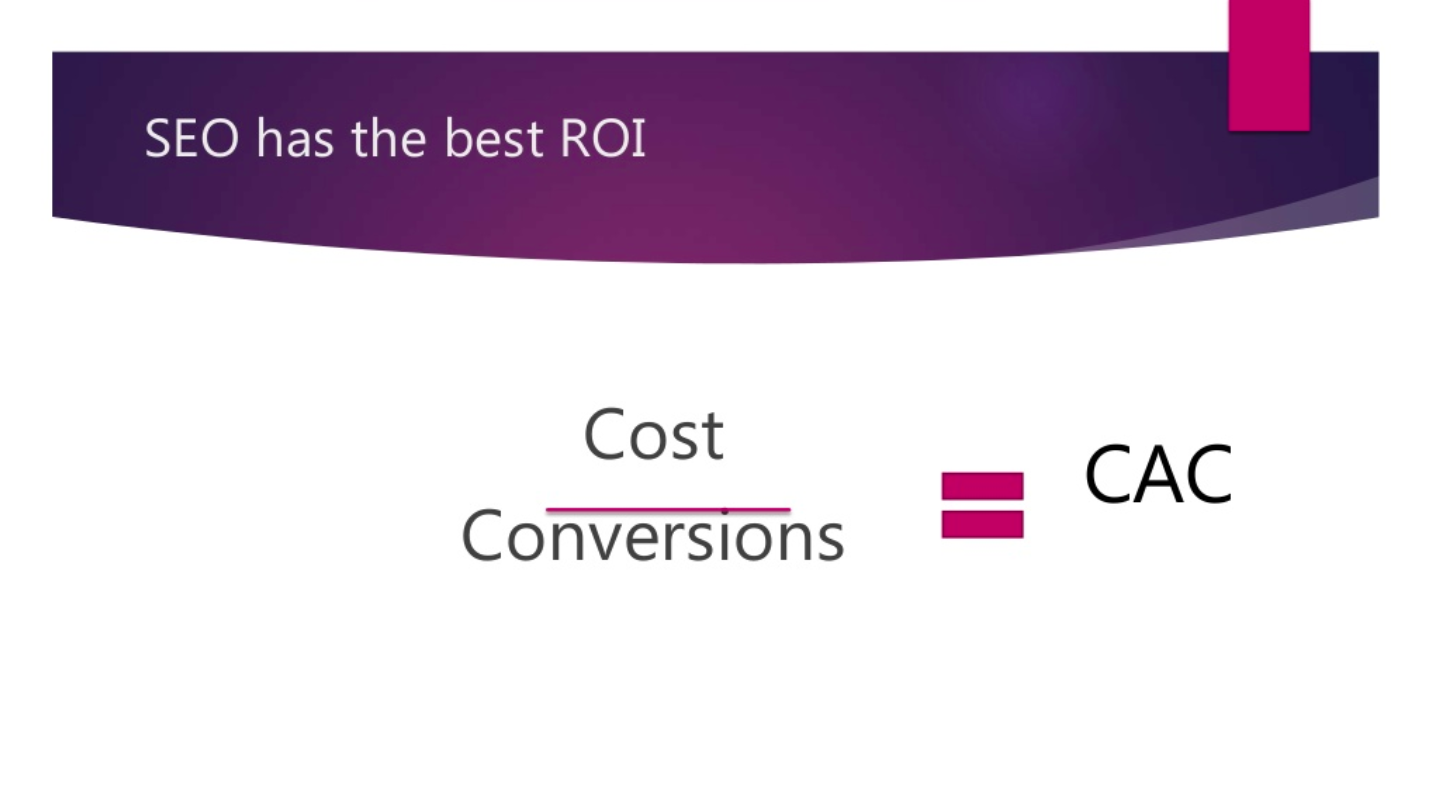
6. Planning
Ensure your fixes are on the roadmap to make sure they are undertaken. Think ahead and ruthlessly prioritise to determine which initiatives should get onto the roadmap. Look at traffic potential, ease of implementation, the time it will take to implement, conversion potential, the cost of the fix and the growth opportunity generated. This will enable you to gather a score for each task, allowing you to determine what needs to be prioritised.
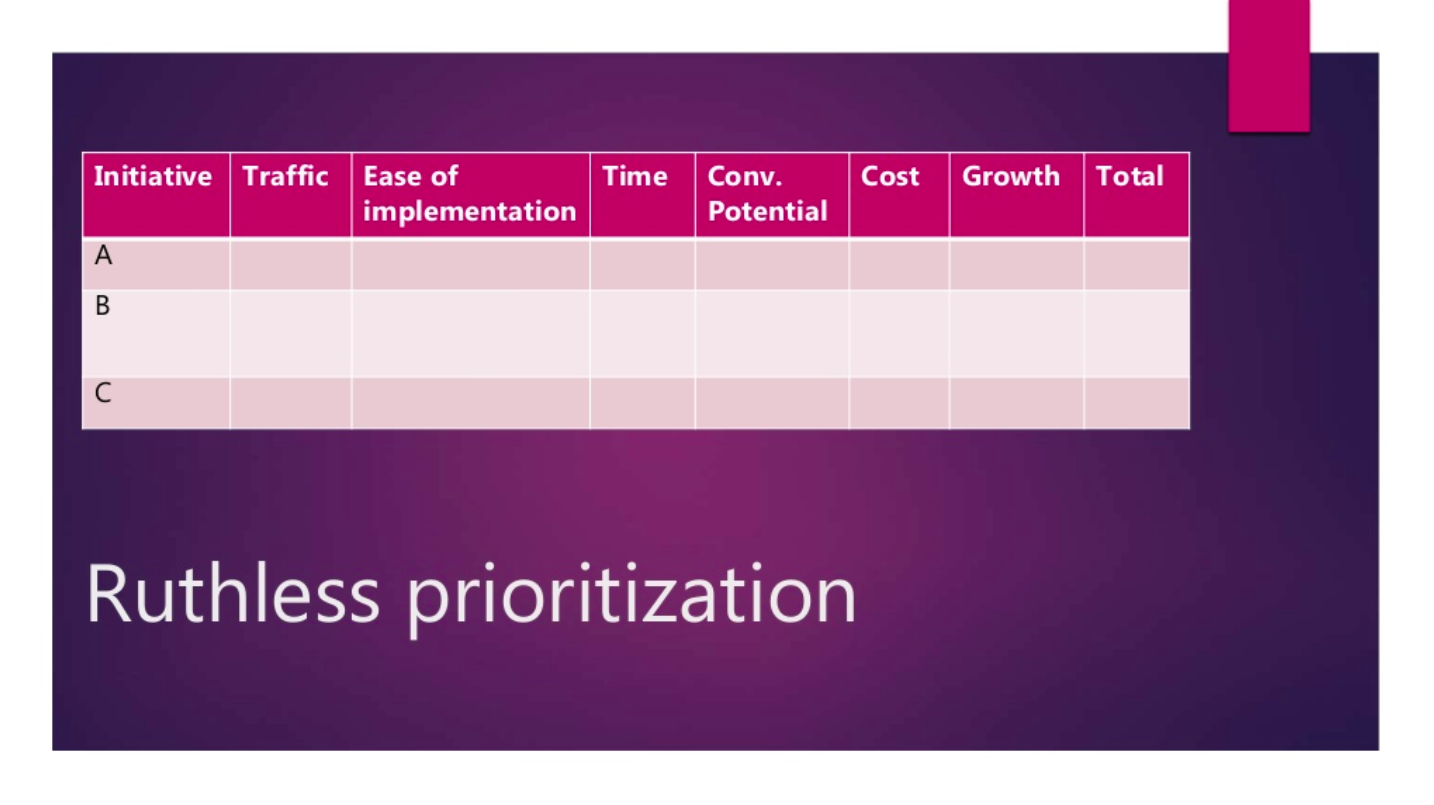
7. Authority
People of authority are listened to and are trusted more as experts in their field. Build your expertise externally and this will in turn prove your expertise internally. Eli explained how writing an external blog post for HubSpot helped the people within his company see him as an expert.
8. Become Internally Famous
Becoming a hub of influence will ensure other teams are advocating for the SEO team and how they can help. Leveraging the power of internal teams including PR, QA, Engineering, Finance and Reporting, will enable your initiatives to always be considered within the work they are undertaking.
9. Reporting
With enterprise sites, reporting is a lot more complex, this is largely due to bigger data sets and more sources. Eli recommends learning how to code in order to write scripts which can be used to efficiently collect data, as well as ensuring you are only reporting on what really matters for key stakeholders.
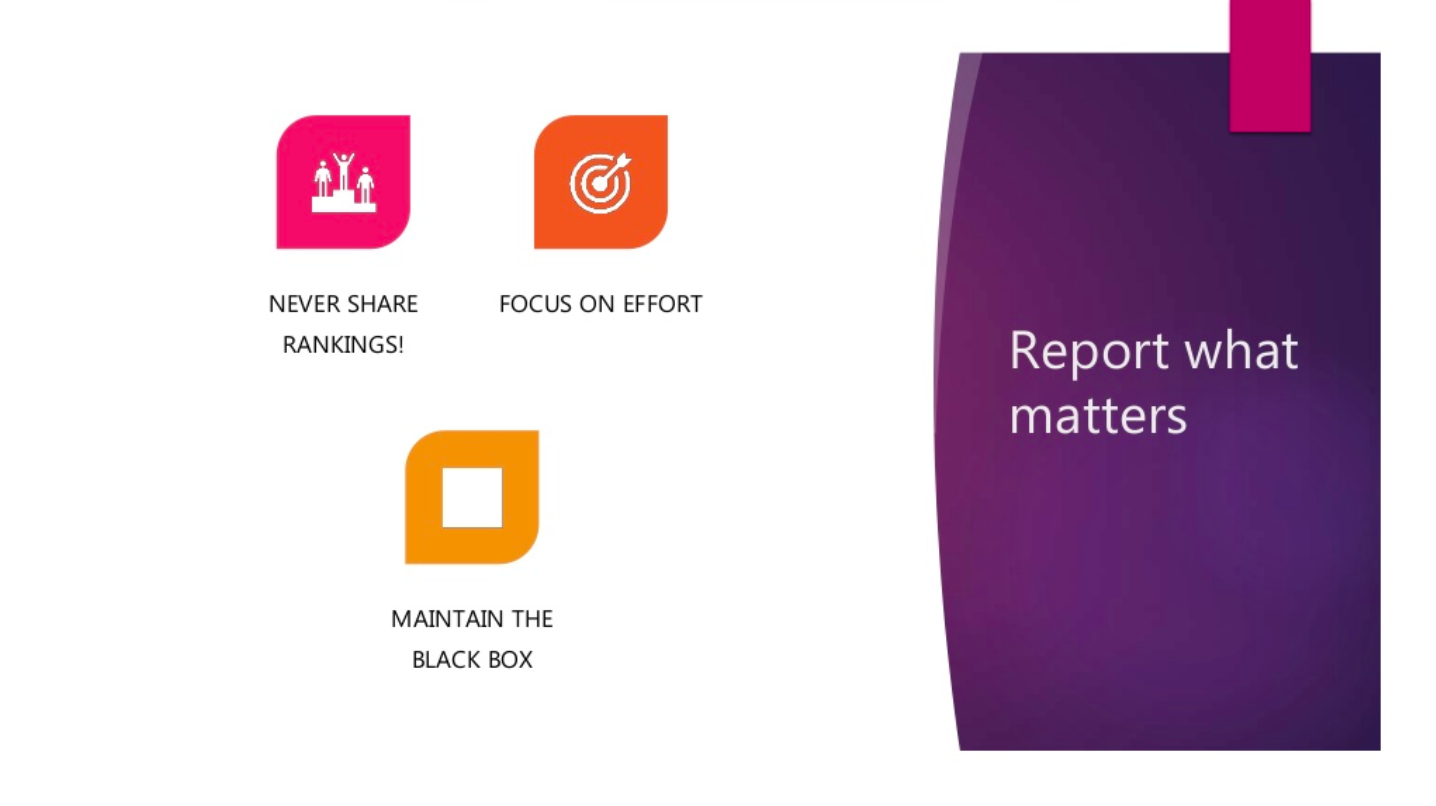
Learning how to utilise APIs for Google Search Console and Google Sheets will also enable you to be self-sufficient when exploring data sets. Eli also recommends using Splunk for data collection and analysis. When compiling a report, focus more on the effort which has been put in, rather than on the output of rankings, which can fluctuate often.
10. Experiment
Eli’s final tip was to develop a growth mindset and use the large amounts of data you have available for learning and testing. With a lot more meaningful traffic visiting the site there is a larger opportunity to perform tests, based on causation and correlation, to see what works best for the site and to base your optimisation efforts on these results. Some examples of these tests include; the impact of nofollow links vs follow links, content length and metadata optimisation.
The Most Important Things to Remember in Enterprise SEO
- Traditional audit and implement processes, which work well for smaller sites, don’t work for enterprise sites. Each site and company is unique and, therefore, will need different processes in order to ensure success.
- Cross-functionality is key – building relationships with other teams and educating them around how SEO fixes can be implemented will help ensure you can get things done.
- Enterprise SEO is a marathon, not a sprint. It can take time to turn things around.
- Leverage the power of the company. With large teams and huge budget potential, there are more opportunities to improve both the site’s performance and your own skills.
- Having good soft skills to build personal relationships within the company is as important as technical SEO knowledge when working on sites at scale.
- Use the enterprise company you work at to build your own personal brand, people will be more willing to reach out to big brands that they recognise.
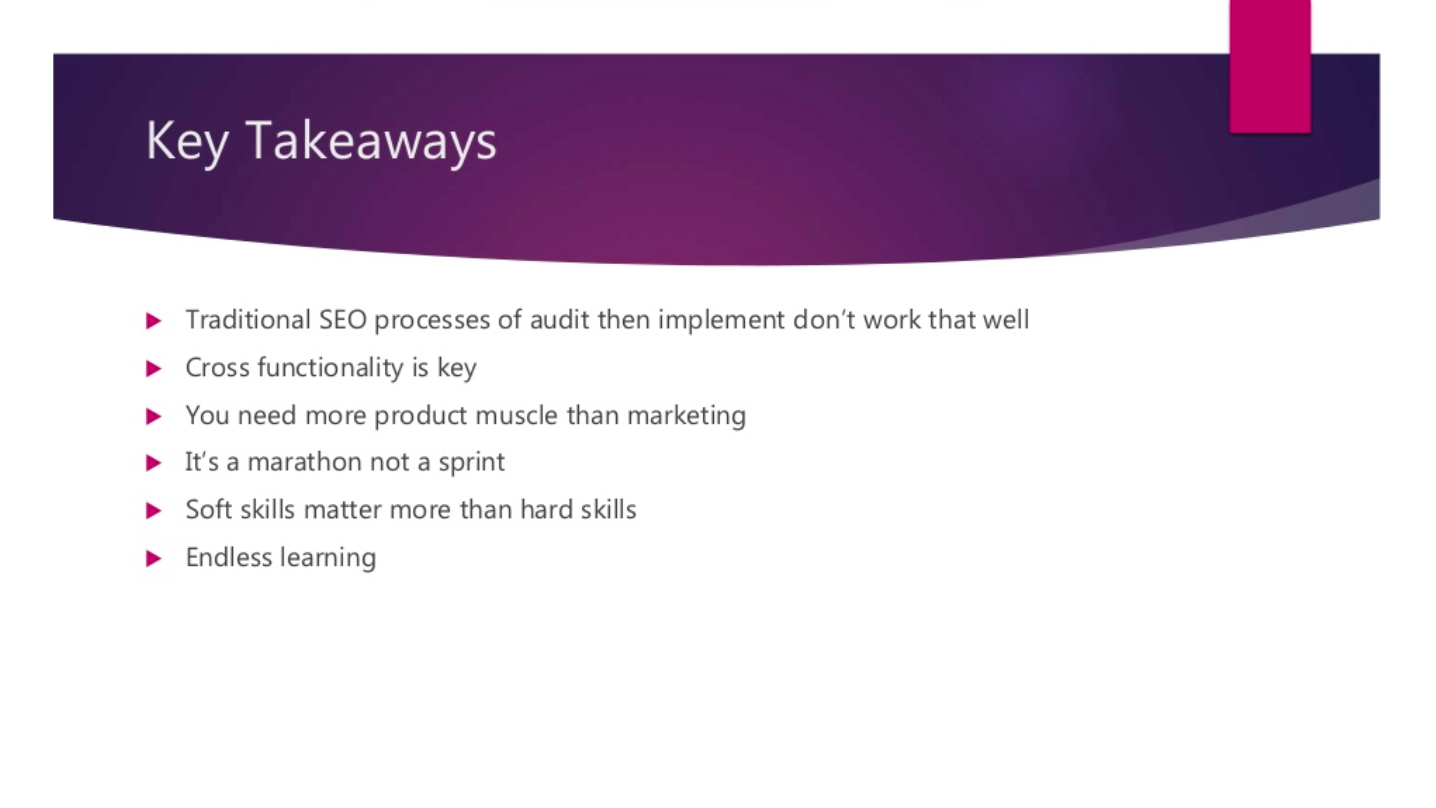
Eli concluded the webinar by explaining that SEO at scale is where the fun happens. Use the large amounts of data you have available to test and learn and utilise the internal teams to build relationships, get things done and increase your own knowledge.
Learn more from Eli in our upcoming Q&A post
The audience asked so many brilliant questions during the webinar Eli that wasn’t able to answer them all at the time. Don’t worry if your question wasn’t answered though, we have sent all the remaining questions to Eli who will answer them all for a Q&A post which will be coming soon to the DeepCrawl blog.
To find out more about how DeepCrawl can help with your Enterprise SEO Challenges, submit a request for a bespoke package and one of our team will be happy to discuss with you a plan for your individual needs.

